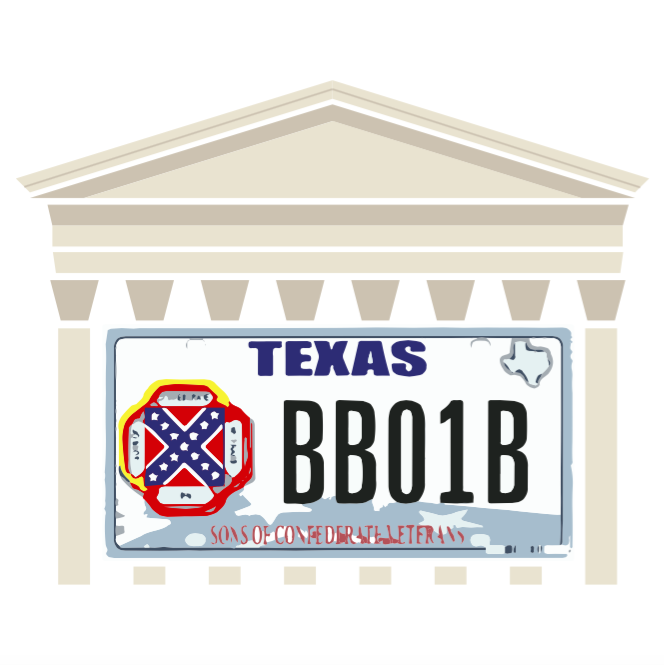The United States Supreme Court began hearing a free speech case Monday regarding Texas’ rejection of a license plate that featured a Confederate flag.
The license plate was initially introduced by the Sons of Confederate Veterans in 2011 but was rejected by the state. Now, four years later, the Supreme Court is hearing the case that has sparked debate whether the flag, which many feel is representative of racism and discrimination, should be allowed to be displayed
Texas offers a selection of more than 350 specialty license plates which drivers can order in lieu of regular license plates for an additional fee. After Texas rejected the submitted design, the Sons of Confederate Veterans contested the rejection on First Amendment grounds. Nine states allow for a similar specialty license plate.
Mary Penrose, law professor at Texas A&M, said the discussion about the license plate revolves around different interpretations of the flag.
“So the state of Texas took testimony and said, ‘Well a lot of people see that Confederate flag and attribute to that flag racism, slavery, all of the negative parts of the Civil War,’ which undoubtedly is one viewpoint,” Penrose said. “But individuals that are seeking this license plate are looking at a different view of the Civil War, and looking at their ancestry and their family heritage and they have a different viewpoints.”
Philip Smith, history professor, said the reasons behind the controversy involve more than the license plate, dating back to the Civil War.
“I don’t think there is national agreement as to what the Civil War decided,” Smith said. “And I think it goes back to the very beginnings of the colonial period of the country and it is very much entangled with the whole slavery question. So the way slavery ended is very much in contention still.”
Smith referenced quotations from Confederate members discussing the causes of the war. Secession commissioners said the South seceded to maintain slavery. Smith said this shows the war was about slavery, not states’ rights, making the Confederate flag a problem for many people today.
“This is what those commissioners said to the legislatures … and in every case it is all about slavery, it is all about race, it is not about states’ rights,” Smith said. “And it is very much based on assumptions about white supremacy. And there is no way to avoid that, that is what the flag represents historically.”
Kirby Goidel, communication professor, said the argument is a First Amendment issue and the Supreme Court will look at whether the Confederate flags will fall under the “fighting words” exception to free speech.
“Typically that’s the argument for why you shouldn’t allow racist speech or other types of offensive speech, or speech that might be interpreted that way,” Goidel said. “In this case, I think the Sons of Confederate Veterans would argue that it’s not intended to be racist speech and that’s other people’s interpretation of what they are saying.”
Penrose said another question will be whether license plates are considered private or government speech.
“We know everyone has to have a license plate, but what people put on the back of their license plate, whether it’s a vanity plate or a specialty plate, is really a private decision,” Penrose said.
Penrose said assuming license plates are ruled as private speech, the Sons of Confederate Veterans are likely to win the suit.
“Looking at that particular approach to the First Amendment the state is going to have to justify curtailing this speech,” Penrose said. “I mean, there are certain content restrictions that are permissible, but can the state of Texas pick one viewpoint over another, one speaker over another, can it censor certain speakers? And the answer historically and clearly under the First Amendment is no.”
Conversely, Mason Wuthrich, history senior, said he thinks the Texas argument will win.
“I think it’s a confusion of the concept of free speech,” Wuthrich said. “The government protects your right to free speech but they don’t have to provide you a platform for free speech, and they certainly don’t have to make government products a platform for you to express whatever it is you want to express.”









